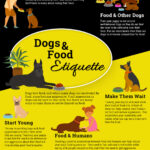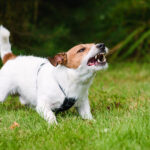What Happens If A Dog Drinks Coffee
What Happens If a Dog Drinks Coffee? Exploring the Risks and Effects of Canine Caffeine Consumption
If you’re a coffee lover who also happens to be a dog owner, you may have wondered whether your loyal companion could share your addiction. After all, dogs seem to enjoy many human foods and beverages, from peanut butter to beer, so why not coffee? However, before you let your pup sip some java from your mug or spill it on the floor, you should know that caffeine can be harmful for dogs in various ways. In this article, we’ll examine what happens if a dog drinks coffee and how you can prevent such an incident from occurring.
Introduction: Why Coffee and Dogs Don’t Mix
Coffee is one of the most popular beverages in the world, consumed by millions of people every day for its stimulating effects and rich flavor. However, coffee also contains caffeine, a natural stimulant that affects the central nervous system of humans and other animals. While moderate caffeine intake is generally safe for adults, excessive consumption can cause side effects such as jitters, anxiety, palpitations, insomnia, and dehydration. Moreover, caffeine is toxic to dogs in much lower doses than for humans, due to their smaller size and different metabolism.
Subheading 1: The Risks of Caffeine Toxicity in Dogs
Caffeine toxicity is a serious condition that can affect dogs who ingest even small amounts of coffee or other sources of caffeine. Symptoms of caffeine poisoning in dogs may include restlessness, panting, trembling, rapid heartbeat, high blood pressure, vomiting, diarrhea, seizures, collapse or even death. The severity and duration of these symptoms depend on several factors such as the type and amount of caffeine consumed, the age and health status of the dog, and the time elapsed since ingestion. Therefore, if you suspect that your dog has drunk coffee or eaten any caffeinated food or supplement, you should contact your veterinarian immediately.
Subheading 2: The Effects of Caffeine on Canine Health
Apart from the acute risks of caffeine toxicity, chronic exposure to caffeine can also have negative effects on a dog’s health. For example, caffeine can increase the risk of heart disease, hypertension, kidney damage, and cancer in dogs. Additionally, caffeine can interfere with the absorption of nutrients such as calcium and iron, leading to deficiencies that affect bone and muscle strength. Moreover, caffeine can cause behavioral changes in dogs such as hyperactivity, aggression, anxiety, and sleep disturbances. Therefore, even if your dog doesn’t show any immediate symptoms of caffeine poisoning after drinking coffee, you should avoid giving them any caffeinated products regularly or in large amounts.
Subheading 3: How to Prevent Accidental Caffeine Consumption in Dogs
Prevention is the best way to protect your dog from the harmful effects of caffeine. Here are some tips on how to keep your dog away from coffee and other sources of caffeine:
– Store your coffee beans or grounds in a sealed container that your dog cannot open or reach.
– Don’t leave your cup of coffee unattended where your dog can access it.
– Avoid feeding your dog foods or supplements that contain caffeine such as chocolate, tea, energy drinks, diet pills, or painkillers.
– Teach your children and guests not to give coffee or other caffeinated beverages to your dog.
– Train your dog to obey commands such as “leave it” or “drop it” so that you can intervene if they try to eat something they shouldn’t.
– Use positive reinforcement techniques such as treats and praise to reward good behavior and discourage bad behavior.
Conclusion: A Cup of Coffee is Not Worth Your Dog’s Health
In conclusion, what happens if a dog drinks coffee is nothing good. While the idea of sharing a cup of coffee with your furry friend may sound cute or amusing, it can have serious consequences for their health and well-being. Caffeine is a powerful stimulant that can harm dogs in many ways, from causing acute poisoning to promoting chronic diseases. Therefore, as a responsible dog owner, you should keep your coffee away from your dog and educate yourself and others about the risks of canine caffeine consumption. Remember that your dog depends on you for their safety and happiness, so don’t let a cup of coffee ruin their day or life.



